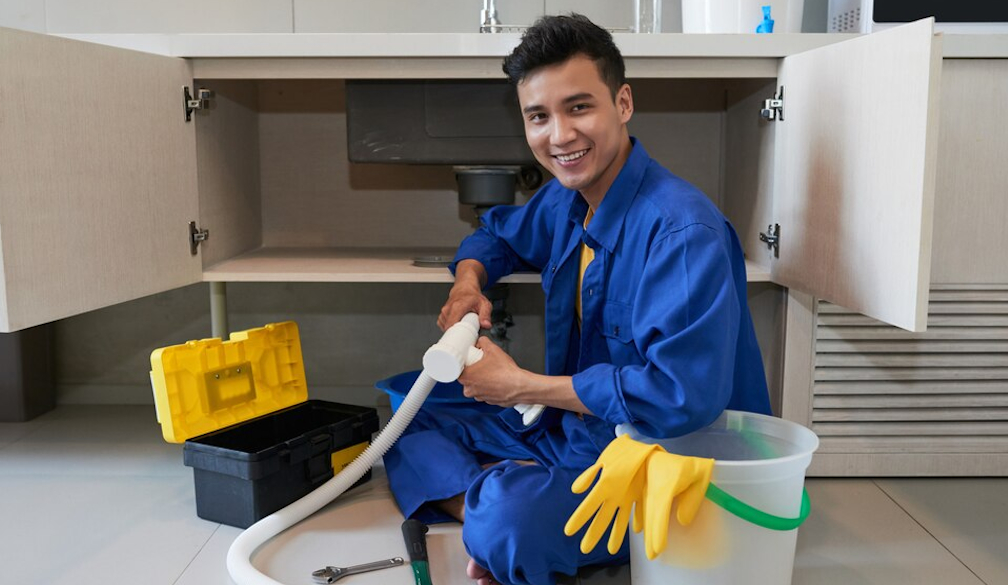How to Use a Plumbing Snake: The Ultimate Guide

Dealing with a clogged drain can be a homeowner's nightmare. From kitchen sinks to shower drains, blockages can disrupt your daily routine and lead to unpleasant odors. While there are various methods to tackle this issue, one tool that often proves to be highly effective is the plumbing snake.
In this comprehensive guide offered by a plumber in Mosman, we'll walk you through the steps of using a plumbing snake to clear those stubborn clogs and get your plumbing back in working order.
Understanding the Plumbing Snake
Before diving into the practical aspects, it's essential to understand what a plumbing snake is and how it works. Also known as a drain auger, a plumbing snake is a flexible auger used to dislodge and remove clogs in pipes. It typically consists of a long cable with an auger or hook at one end and a handle at the other. The snake is designed to navigate through the twists and turns of your plumbing system, reaching clogs that are not accessible by other means.
Step-by-Step Guide to Using a Plumbing Snake
1. Safety First:
Before starting any plumbing project, safety should be your priority, as guided by a plumber in Mosman. Wear protective gloves and safety goggles to shield yourself from any debris or splashes. If you've used any chemical drain cleaners recently, ensure the area is well-ventilated.
2. Identify the Clog:
Before grabbing your plumbing snake, try to identify the location of the clog. Knowing the approximate location will help you determine where to insert the snake and increase the chances of success.
3. Choose the Right Snake:
Plumbing snakes come in various lengths and sizes. For smaller household drains like sinks and showers, a handheld snake with a cable length of 25 feet is usually sufficient. For larger drains or main sewer lines, a motorized snake with a longer cable might be necessary.
4. Inserting the Snake:
Extend the cable into the drain slowly, feeding it through the pipe.Rotate the snake's handle clockwise as you push it forward. This helps the auger at the end break up and grab onto the clog.
5. Locate and Break the Clog:
Once you encounter resistance, you've likely reached the clog. Rotate the snake more vigorously to break up the obstruction.If you feel the snake has engaged with the clog, start pulling it back slowly. This action should bring the clog out with the snake.
6. Repeat if Necessary:
In some cases, you may need to repeat the process to ensure you've completely cleared the clog.If the clog persists, you might need to adjust your approach or consider seeking professional help.
7. Clean the Snake:
After use, thoroughly clean the plumbing snake to remove any debris and prevent the spread of contaminants. Follow the manufacturer's instructions for cleaning and storage.
8. Flush the Drain:
To ensure the pipe is completely clear, run hot water or use a mild drain cleaner to flush any remaining debris.
Advanced Techniques and Troubleshooting
A. Dealing with Stubborn Clogs:
For persistent clogs, you might encounter difficulty breaking through with a traditional plumbing snake. In such cases, consider using a power auger, a motorized snake with more force.
B. Tree Root Intrusions:
In outdoor plumbing lines, tree roots can sometimes invade pipes, causing persistent clogs. A specialized root cutter attachment for your plumbing snake can help sever and remove these intrusive roots.
C. Preventive Maintenance:
Regularly using a plumbing snake, even when there's no apparent clog, can help prevent blockages by clearing out accumulated debris. Consider incorporating this preventive maintenance task into your annual home care routine.
D. Augmenting with Bio-Enzymatic Cleaners:
Bio-enzymatic drain cleaners contain beneficial bacteria that eat away at organic matter in your pipes. Using these cleaners after snaking your drain can help prevent future clogs by breaking down residual debris.
Troubleshooting Common Issues:
a. Snake Gets Stuck:
If your snake gets stuck in the pipes, avoid forcing it. Instead, gently retract the snake and reevaluate the situation. You may need to adjust the angle or switch to a different entry point.
b. No Improvement:
If you see no improvement after multiple attempts, it's time to reassess. The clog might be more severe than initially thought, and professional assistance may be necessary.
c. Foul Odors Persist:
If unpleasant odors persist even after clearing the clog, it could indicate a deeper issue. Consider seeking professional help to inspect the integrity of your pipes.
Conclusion
Learning how to use a plumbing snake is a valuable skill for any homeowner. By following these steps and tips, you can confidently tackle minor clogs and keep your plumbing system running smoothly. Remember, while DIY solutions are excellent for minor issues, it's crucial to recognize when a professional plumber's expertise is needed. Armed with the knowledge of using a plumbing snake, you can maintain your home's plumbing and address clogs efficiently.










